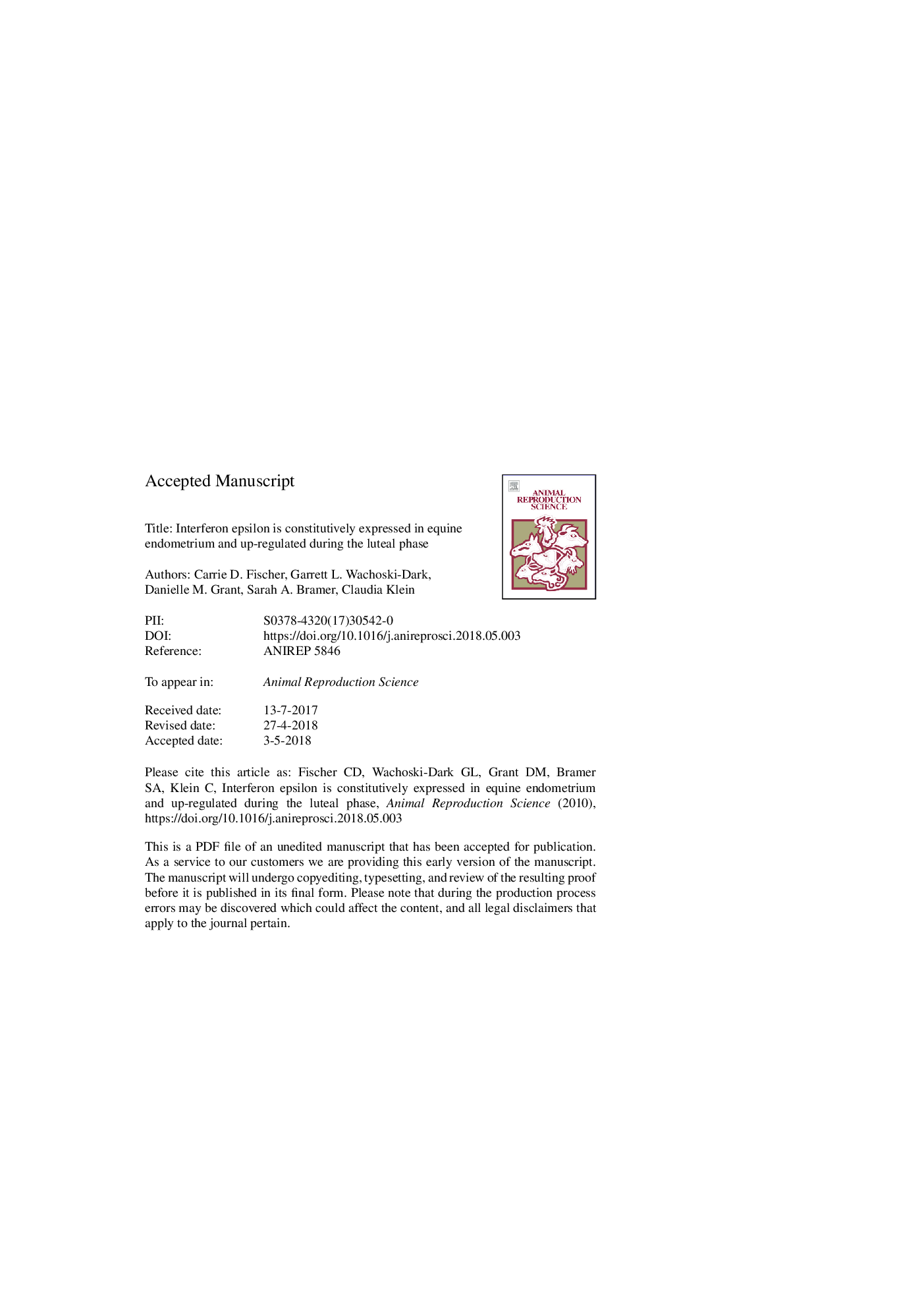| کد مقاله | کد نشریه | سال انتشار | مقاله انگلیسی | نسخه تمام متن |
|---|---|---|---|---|
| 8403766 | 1544682 | 2018 | 17 صفحه PDF | دانلود رایگان |
عنوان انگلیسی مقاله ISI
Interferon epsilon is constitutively expressed in equine endometrium and up-regulated during the luteal phase
ترجمه فارسی عنوان
اینترفرون اپسیلون اساسا در اندومتری اسب نشان داده می شود و در طول فاز لوتئال تنظیم می شود
دانلود مقاله + سفارش ترجمه
دانلود مقاله ISI انگلیسی
رایگان برای ایرانیان
کلمات کلیدی
موضوعات مرتبط
علوم زیستی و بیوفناوری
علوم کشاورزی و بیولوژیک
علوم دامی و جانورشناسی
چکیده انگلیسی
Interferon epsilon (IFNE) is type I interferon which stands out through its unusual expression profile and differing regulation compared to classic type I interferons such as interferon alpha and interferon beta. Unlike other type I interferons, the expression of IFNE is not stimulated through exposure to viral agents. Expression of IFNE is most abundant in mouse and human endometrium where it is constitutively expressed in luminal and glandular epithelial cells and expression levels are up-regulated with estrogen exposure. The aim of the current study was to determine whether a cycle or pregnancy dependent expression pattern of IFNE is existent in equine endometrium and to localize IFNE expression within the endometrium. Additionally, endometrial explant culture and culture of mixed epithelial/stromal cells populations was used to determine the effects estrogen and seminal plasma on IFNE transcript abundance. Samples collected during diestrus and pregnancy expressed significantly higher levels of IFNE than samples obtained from anestrous or estrous mares (Pâ¯<â¯0.001). Exposure of mixed endometrial epithelial/stromal cell populations and endometrial explants to 10% seminal plasma and estradiol 17-beta did not affect IFNE expression levels (Pâ¯>â¯0.05). Upon in situ hybridization, staining was exclusively present in luminal and glandular epithelial cells, with stromal displaying absent staining intensity. Both diestrous and pregnant samples were characterized by markedly stronger staining of glandular epithelial cells than anestrous and estrous samples. The progesterone-dependent increase in IFNE abundance during the estrous cycle likely implies that IFNE is part of the innate immune system in endometrium that gives protection against uterine infections during progesterone-dominated phase of the estrous cycle.
ناشر
Database: Elsevier - ScienceDirect (ساینس دایرکت)
Journal: Animal Reproduction Science - Volume 195, August 2018, Pages 38-43
Journal: Animal Reproduction Science - Volume 195, August 2018, Pages 38-43
نویسندگان
Carrie D. Fischer, Garrett L. Wachoski-Dark, Danielle M. Grant, Sarah A. Bramer, Claudia Klein,
